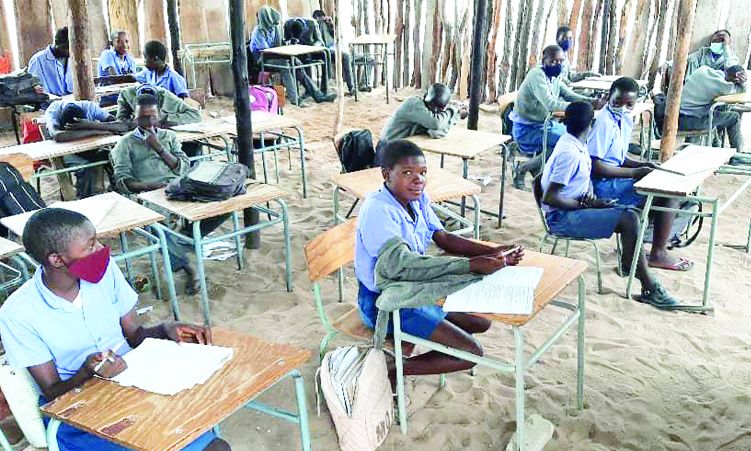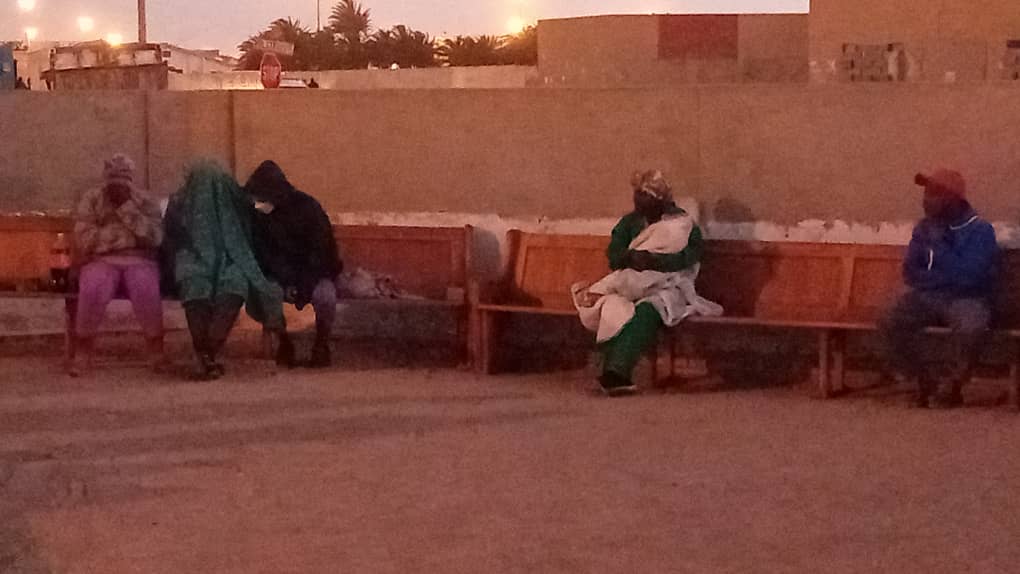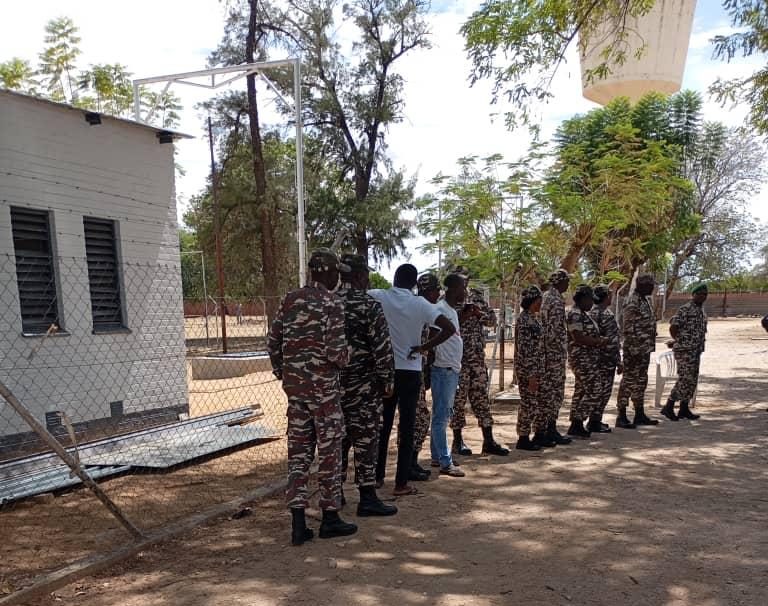Mundjeneka Shilombwela, a teacher at Omuuni Combined School in the Ohangwena region, said life as a rural teacher is challenging and she often needs to make do with the bare minimum to practise her craft.
Shilombwela, who teaches in a class made of poles, told The Namibian recently she has grown accustomed to seeing animals enter classrooms during lessons. Sometimes rain drips through the roof, wetting the pupils’ books. This happens while pupils are forced to sit on dusty floors, and go without textbooks to enhance their reading.
“Some kids are being taught in classrooms that are not well structured, especially now in winter when it’s so cold. There is no concrete floor… it’s just sand,” she said.
Some of her pupils have to walk approximately 30 kilometres to get to school. These circumstances, however, are not only widespread in the Ohangwena region, but portray the challenges faced by many rural teachers across the country.
“It’s a very bad experience as a teacher.”
Another teacher, Tukwafa Shilombwela from Omulunga Primary School in the Oshana region, also bemoaned the challenges experienced by teachers in rural areas.
“Most pupils are not exposed to real life situations. Learning becomes easier when you can relate it to past experiences,” she said, calling on the government to provide the basic necessities to rural schools to improve teaching conditions.
“The involvement of the government in the development of education in rural areas is very important because the government is one of the biggest stakeholders in education.”
Meanwhile, deputy education minister Faustina Caley said although education receives the highest budgetary provision, most of it is taken up by wages.
“The government of Namibia is dedicated to the budgetary allocation for education, therefore, the education sector is always getting more than other sectors but the provision caters mostly for salaries of teachers.”
Caley said they are reaching out to various private stakeholders to assist in the upgrading of infrastructure, and commended MTC for playing a major role in creating infrastructure in rural schools after the company recently donated four classrooms and a storeroom to Groendraai Primary School in the Hardap region.
Caley said infrastructure is important because it creates a conducive environment for learning.
“Rural schools are faced with many challenges, one being the infrastructure and the other being the government support in relation to town schools,” said the principal of Groendraai Primary School, Charlton Rickerts, in an interview with Desert Radio on Wednesday.
Rickerts said the classrooms that were built are, however, too small to host large numbers of pupils.
Speaking at the inauguration of the classrooms, Hardap governor Salomon April commended the government for recognising the mandate of education support in rural areas.
“They understand the mandate of bringing education to most remote areas… a place outside of any town, some kilometres away from any urban centre,” April said.
He called for active parental participation in the lives of rural pupils and said quality parenting is integral to quality education.
April said teachers cannot become surrogate parents for pupils if their parents are alive, and appealed to parents to get involved in the lives of their school going children.
Stay informed with The Namibian – your source for credible journalism. Get in-depth reporting and opinions for
only N$85 a month. Invest in journalism, invest in democracy –
Subscribe Now!






